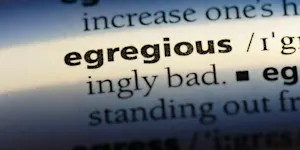What Makes This Word Tick
The word "incumbent" carries a sense of responsibility and expectation, often popping up in political and business conversations. It describes someone who currently holds a specific position or office. Though it can be a term tied to power, it also comes with the baggage of duties and the weight of staying ahead of the competition.
If Incumbent Were a Person…
Incumbent would wear a perfectly tailored suit, always look slightly stressed, and attend every meeting on the calendar. Imagine them as your local mayor or the CEO who's just as concerned with tomorrow's challenges as today's achievements. They'd be the person you depend on when the going gets tough, but who secretly worries about the next election.
How This Word Has Changed Over Time
The word "incumbent" has a longstanding history of dignified presence. Its usage has stayed relatively stable over the years, maintaining its core meanings while occasionally broadening to describe looming obligations and pressures—not just titles. Its role in language has extended from formal settings to more casual ones, reflecting the world’s shift towards informal communication.
Old Sayings and Proverbs That Use Incumbent
There aren't proverbs specifically with "incumbent," but plenty capture its essence. Think of phrases like "heavy is the head that wears the crown." It's all about the responsibility—an idea incumbent embodies beautifully.
Surprising Facts About Incumbent
Did you know that incumbents in political positions often enjoy a considerable advantage when running for re-election? This phenomenon is known as the "incumbency advantage," with benefits such as name recognition and established networks. It’s almost like getting a head start in a three-legged race!
Out and About With This Word
You'll find "incumbent" making the rounds in offices, political rally speeches, and annual board meetings. Think beyond politics—this word also fits into any scenario where someone is tasked with fulfilling duties.
Pop Culture Moments Where Incumbent Was Used
Though not frequent on the silver screen, "incumbent" makes cameo appearances in shows like "The West Wing" or "House of Cards," where political power plays and officeholders are center stage. It's more of a background actor but essential in setting the scene.
The Word in Literature
In the realm of literature, "incumbent" would naturally appear in political thrillers and corporate dramas. Authors like Tom Clancy or John Grisham might have characters wrestling with the burdens of being the incumbent in hotly contested roles.
Moments in History with Incumbent
The 1980 U.S. presidential election was a major moment, where the incumbent president, Jimmy Carter, faced tough competition from Ronald Reagan. It underscored the precarious nature of being an incumbent in turbulent times.
This Word Around the World
In French, "incumbent" translates to "titulaire." Interestingly, across many languages, the concept of "incumbent" holds steady, dealing with roles and responsibilities irrespective of borders. It's a global word for a universal role.
Where Does It Come From?
"Incumbent" finds its roots in the Latin word "incumbere," meaning "to lie upon." This origin aligns beautifully with its sense of responsibility and duty that lays heavily upon the shoulders of the current officeholder.
How People Misuse This Word
Sometimes people confuse "incumbent" with inevitable tasks, but it strictly refers to someone currently holding an office or position and their corresponding responsibilities, not the unavoidable chores at home.
Words It’s Often Confused With
Predecessor: Refers to someone who previously held a position.
Successor: The one who follows after an incumbent.
Incubate: Completely different, meaning to develop gradually.
Additional Synonyms and Antonyms
Synonyms include officeholder, current, reigning. An antonym could be challenger, someone looking to replace the incumbent, or, more loosely, outsider.
Want to Try It Out in a Sentence?
"During the election, the incumbent senator faced a stronger-than-expected challenge from a previously unknown competitor."
















